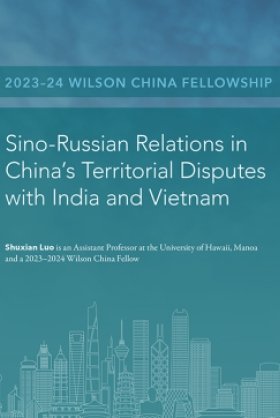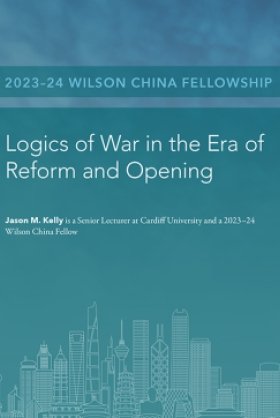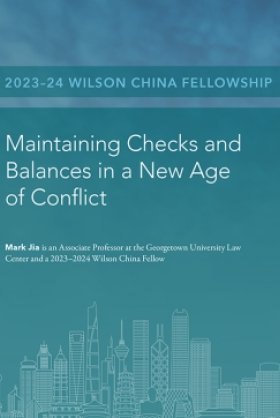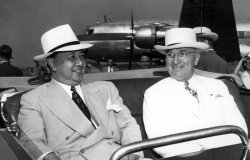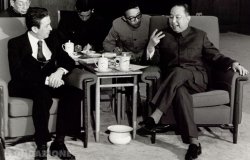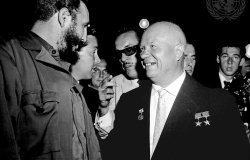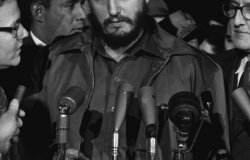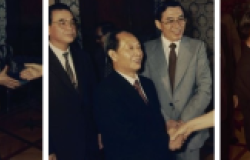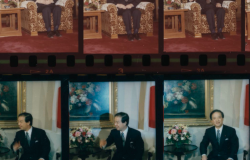Shadow Cold War: The Sino-Soviet Competition for the Third World
The Cold War is often seen as a bilateral US-Soviet conflict, but Jeremy Friedman argues that the Sino-Soviet split was deeply consequential for the fate of Asia, Africa, and Latin America as well for the adherents of the left worldwide. While the Soviets prioritized the replacement of capitalism by socialism, the Chinese instead saw the defeat of imperialism as the primary revolutionary objective. Coming in the wake of decolonization, the Sino-Soviet clash became the geopolitical vehicle for the new nations of the Global South to alter the Second World’s revolutionary agenda.
Overview
The Cold War is often seen as a bilateral US-Soviet conflict, but Jeremy Friedman argues that the Sino-Soviet split was deeply consequential for the fate of Asia, Africa, and Latin America as well for the adherents of the left worldwide. While the Soviets prioritized the replacement of capitalism by socialism, the Chinese instead saw the defeat of imperialism as the primary revolutionary objective. Coming in the wake of decolonization, the Sino-Soviet clash became the geopolitical vehicle for the new nations of the Global South to alter the Second World’s revolutionary agenda.
Jeremy Friedman is an Assistant Professor of Business Administration at Harvard Business School. Previously he was the Associate Director of the Brady-Johnson Program in Grand Strategy at Yale, after receiving his Ph.D. from Princeton in 2011. In addition to Shadow Cold War: The Sino-Soviet Competition for the Third World (UNC Press, 2015), he has published articles in Cold War History and Modern China Studies. His current project, “Modelling Revolution: Constructing Third World Socialisms,” looks at the attempt to find a workable model of socialism for developing countries.
The Washington History Seminar is co-chaired by Eric Arnesen (George Washington University) and Christian Ostermann (Woodrow Wilson Center) and is sponsored jointly by the National History Center of the American Historical Association and the Wilson Center's History and Public Policy Program. It meets weekly during the academic year. The seminar thanks the Society for Historians of American Foreign Relations and the George Washington University History Department for their support.
Hosted By

History and Public Policy Program
The History and Public Policy Program makes public the primary source record of 20th and 21st century international history from repositories around the world, facilitates scholarship based on those records, and uses these materials to provide context for classroom, public, and policy debates on global affairs. Read more

Cold War International History Project
The Cold War International History Project supports the full and prompt release of historical materials by governments on all sides of the Cold War. Through an award winning Digital Archive, the Project allows scholars, journalists, students, and the interested public to reassess the Cold War and its many contemporary legacies. It is part of the Wilson Center's History and Public Policy Program. Read more
Thank you for your interest in this event. Please send any feedback or questions to our Events staff.

